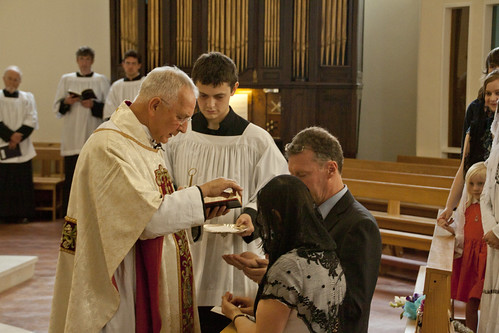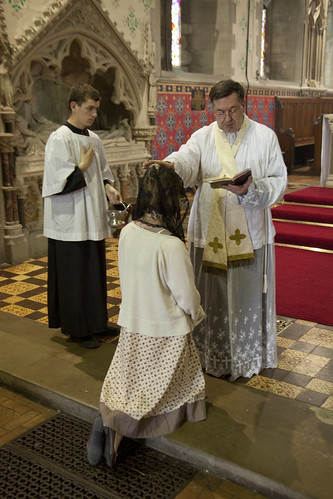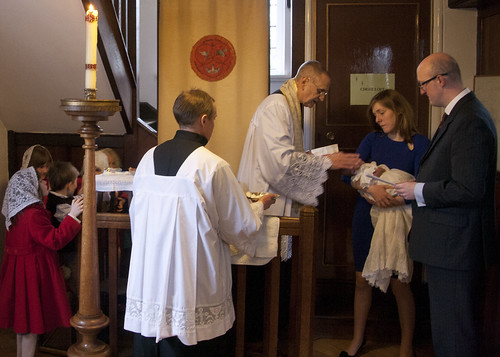 |
| Three things the Cathars detested. 1: The solemnisation of Marriage. |
In his Catholic Times column of 8th September, Mgr Loftus wants to have a go at Pope Innocent III. Loftus seems incapable of seeing the problem: that this Pope, who encapsulates so much of what he doesn't like, was God's instrument in approving the Rule of St Francis, a rule of poverty so radical that it had to be toned down as time went on, and caused endless problems in the Order Francis founded. An impartial observer might easily judge that Pope Innocent III was so reluctant to 'crush the spirit', so open St Francis' charisma and personal holiness, that he didn't do enough to inject some common sense into the enterprise. This is the man, as Loftus says with some truth, who occupied the See of Rome at the zenith of its temporal power and influence over European politics. St Francis, on the other hand, adopted the liturgy of the Papal Court as that of his Order, which then spread through Europe as the form of the Roman Rite we all know and love. So maybe life is a bit more complicated than you've imagined all this time, Basil?
Loftus' attempt to line everyone in history up into Good and Bad, Progressive and Lace-loving, goes even more horribly wrong when he gets to the Cathars, or Albigensians. On the time-worn principle 'my enemy's enemy is my friend', because Pope Innocent III is Bad, the Cathars must be Good.
Referring to them:
Their criticism of the worldly and material lifestyle of the Papal court so riled Innocent that he ordered the French King to go on yet another crusade against them.
Oh is that right? The Cathars were persecuted for criticising worldliness, while St Francis somehow not only escaped this persecution but actually got the Papal blessing for his aescetical new order. How is that supposed to work? In fact, the Cathars were a particularly nasty kind of dualist, who thought matter so evil that marriage and procreation were barriers to salvation. Is that what Loftus means by rejecting 'worldliness'?
 |
| 2: The Blessing of an Expectant Mother. |
The Cathars are good company, however, for the two other examples Loftus provides of people persecuted unjustly by the Church's heresy-hunters: 'good men such as Teilhard de Chardin, and writers who are simply exploring the truth ... good men such as Sean Fagan in Ireland today.'
Fr Fagan, at 84 I suppose a contemporary of Mgr Loftus, has been calling for the ordination of women, among other things.
Another very strange passage occurs later in the column.
As Christians we are community. We are called to Salvation not as individuals, but as members of the Church, just as the chosen people prepared for the first coming of Christ in community, so too today we prepare for his [sic] return in glory by living in the community of the Church. Salvation is corporate within the community of the Church.
What does it mean? Perhaps nothing at all. It does remind me strangely of the heresy of mono-psychism, combated by St Thomas Aquinas, that said all human beings have only one soul between them. This was condemned because it was incompatible with, well, individual salvation, and individual eternal reward and punishment. The point to keep in mind, Mgr, is that we aren't all saved, or damned, together: each of us must pay for his own sins. Perhaps the Cathars can put him straight on this one.
 |
| 3: the Baptism of a baby, with siblings looking on. Does Loftus hate them too? |
This comment has been removed by the author.
ReplyDeleteWould that be the same Teilhard who cheated and FAKED discoveries? My Dogma Prof. almost suffered from apoplexy when I challenged his teachings on Teilhard.
ReplyDeleteMy understanding of Teilhard (whose Milieu Divin I read many years ago in French and didn't understand) was that he was a competent scientist who got out of his depth when he started extrapolating all-embracing therories about the cosmos and inevitable progress and the rest of it. IIRC Sir Peter Medawar gave him a jolly good fisking. Those with an interest in this sort of thing may want to look it up.
ReplyDeleteThis comment has been removed by the author.
ReplyDeleteSimon Reilly where is your evidence to back up your comment 'it was ordinary (people) in the street that wanted their blood'. From my reading about the Cathars I understand they were not hated by the general public.
ReplyDeleteMy assertion that the general public detested the Cathars is taken from A History of the Church by Philip Hughes [Vol. II. page 343] Sheed and Ward: "Wherever it appeared it was universally execrated; and the mob showed no mercy to those suspected of sharing in it." His sources were: A Dufourcq; J Guiraud; F Vernet and Broeckx. I have removed the post because the strong language doesn't square with the fifth commandment.
ReplyDelete